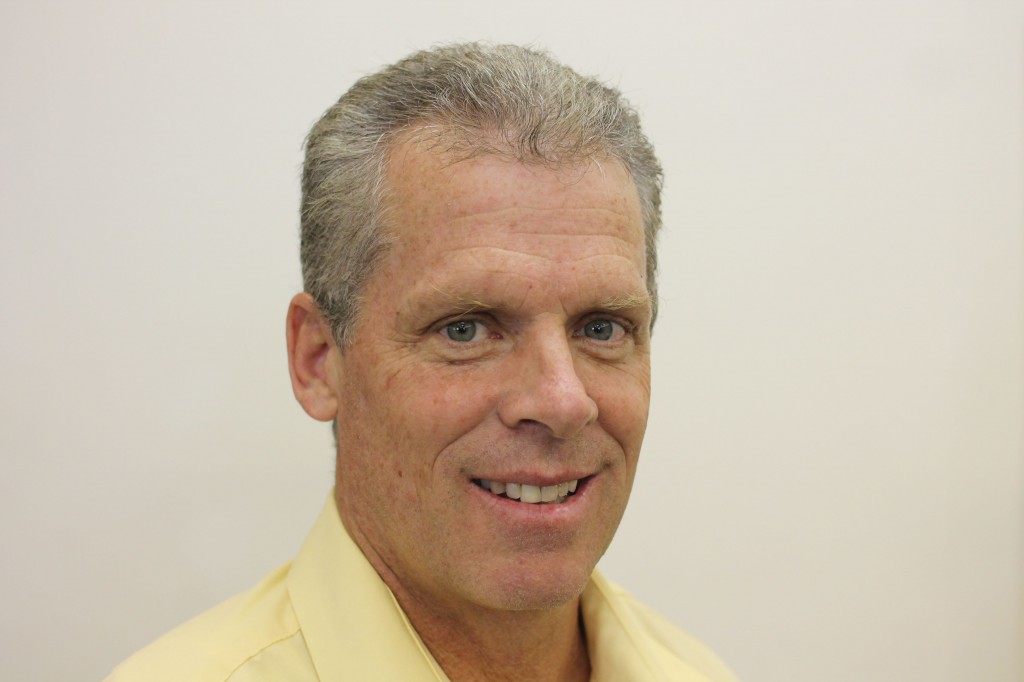

The cold, lifeless concrete walls, barbed-wire fences and heavy, steel doors of prison aren’t strong enough to withstand the penetration of love.
Kevin Starrs, who for the past 16 years has worked in prison ministry for the Diocese of Phoenix, was named director of Catholic ministries to prisons and jails.
He didn’t set out with a goal to build a strong ministry program by evangelizing through shared experiences, understanding and unconditional love — it happened naturally.
His formative years were spent in Altadena, Calif., the third of nine children and son of a deacon.
As the deaconate began to reemerge around the United States, his father moved the family to Window Rock on the Navajo Reservation where he entered the program for the Diocese of Gallup, New Mexico.
Starrs was 12. Life on the reservation was tough; poverty, drugs and alcoholism were the order of the day.
The football and track star soon succumbed to his surroundings, and by his sophomore year he was smoking pot daily.
Although he credits sports from keeping him from “going off the deep end,” it wasn’t enough.
“Birds of a feather flock together. All my friends got high,” he said. “Here I was, raised in the Church… deep down inside I wanted to be with God.”
Starrs managed to keep his personal demons to himself and earned an athletic scholarship to Phoenix College in 1978.
Through his job at the Boys and Girls Club, he met friends who were also on a faith journey and they stumbled along together.
It’s clear Starrs is a unique ambassador for Christ. He has spent decades mentoring, counseling, consoling and befriending a portion of society that never gets a second glance, let alone a second chance.
“Over the years, I chose to lock arms with them, do life with them,” he said. “In this ministry, you experience a lot of joy in the pain.”
Starrs describes the environments these men grew up in as “hell holes;” drug dens with parents high on meth, or a lineage of male family members who are, or were, incarcerated — the prison “badge of honor,” indicating their self-worth on the street.
Starrs has a gift of reaching out to those he ministers to in prison. He can relate to their humanness with sincere empathy and wisdom, all the while bringing them joy and hope in Christ.
It’s the same hope he found when he transferred to Arizona State University.
Committed to changing his life, Starrs went to Narcotics Anonymous, made friends with “nerdy guys,” volunteered with a youth group, watched Christian television, went to daily Mass and attended countless retreats, but he just couldn’t stop smoking marijuana.
Desperate and angry he “let God have it.”
“I pleaded and begged God to tell me what’s wrong with me?” Starrs said.
God answered, and told him to persevere.
He attended a charismatic retreat in the early 1980s where he experienced a deep and intense feeling of Christ’s presence, and his life changed.
“It became personal. He loved me, He died for me,” Starrs said. “I learned I just really wanted to be a soldier for the Lord. I wanted to serve Him and I had to grow and learn.”
This ministry doesn’t end when Starrs walks through the exit door. These men, the majority with gang affiliations, were young boys he met decades earlier on the streets of south Phoenix.
He sent them to retreats, summer camps, got them mentors and jobs, but many found their way back into trouble and behind bars.
Those released and living on the outside continue to seek his counsel, or a good game of basketball.
He gets invited to their children’s birthday parties and family funerals.
It’s a relationship built on the enduring love of God.
“They have pain, I have pain. I’m not better than them,” Starrs said. “They know I can play ball with them, knock them around on the court, but that I love God, and I won’t give up on them.”
He finds his solace through prayer and in his relationship with his wife and five children. He has been married to Silvia for 18 years, and she now shares his passion to bring faith, hope and love to the incarcerated and their families.
Starrs said he realizes his new position will leave him with less time in the trenches, but he said he will “navigate it with experience.”
“I may not totally fix the situation, but I know the direction.”





